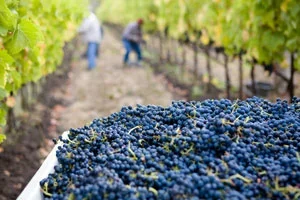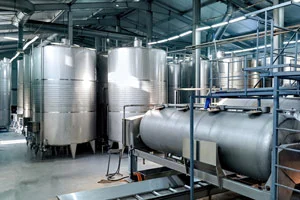In the last post, we discussed how the white wines of this vintage are expected to be, taking into account the weather conditions in recent months and how this affects the maturation of the white grape. In this article, we will focus on the red grape.
At this point in the season, we have enough information to know what the grapes will be like during the last phase of maturation and we can venture a guess as to how the wines we will obtain from this harvest will be like. This can help us plan how to prepare and which treatments will be necessary to guarantee the desired final result.
From the Agrovin Group, we have our Director of Oenology, Luis Cotanda, to tell us all about it.
Low YAN content
Again, as with white grapes, the lack of rain and high temperatures will cause us to have grapes with a low content of yeast assimilable nitrogen (YAN). This will directly affect the following:
- Danger of reduction due to lack of YAN and therefore unpleasant aromas will be produced in the wine.
- Difficult end of fermentation
From the Agrovin Group, we have Actimax Natura, a treatment with a high concentration of YAN in the form of amino acids, especially rich in arginine, an amino acid with a slow metabolism, which allows the yeast to retain a source of YAN at the end of fermentation. Actimax Natura avoids nutritional deficiencies in this phase to not only prevent a reduction in fermentation, but even manages to stop it.
Reduced size of the grape
The grapes that we have been harvesting these pase few weeks in some regions and those that have yet to enter the wineries are reduced in size, increasing their polyphenolic concentration, which means a larger proportion of skin/pulp, which will give the red wines an elevated structure.
Let us not forget that this size of berry in reds, although it is favourable for improving quality, is not so favourable due to the problems arising in maturity, as it is an unbalanced maturity between sugar, skin and seeds (alcohol content/sugar) that is, mature skins, but green seeds that have not matured enough. This imbalance results in astringent wines with green notes.
In this case, the Agrovin Group proposes completing the structure with non-astringent tannins that reduce that sensation of dryness by applying Tanicol Vintage and Tanicol RedSense (the latter increases the fruity nuances).
In addition, if we want to reduce the astringency by increasing the unctuousness with polysaccharides, we have several very useful treatments such as:
- Manno Arome: Fermentation polysaccharide that reduces the impact of green tannins, providing unctuousness and aromatic complexity.
- Viniferm 3D. This yeast has been selected in the “Viticultural and oenological strategies and methods in the face of climate change” project in collaboration with Bodegas Torres. During fermentation, this strain produces a large amount of mannoproteins that increase smoothness by bonding with tannins to reduce the sensation of dryness: More information on the project can be found at: https://agrovin.com/portfolio/demeter/
- Yeasts that produce glycerol, such as Viniferm Caracter, bearing in mind that glycerol also reduces dryness by increasing oiliness.
- The non-Saccharomyces Viniferm NSTD yeast, which produces both glycerol and mannoproteins.
Don’t forget that the very high temperatures we have had since the end of spring have had a direct impact on the ripening of the grapes, increasing the alcoholic strength through partial raisining of the grapes. This can be controlled by using yeasts with a low alcoholic yield, such as Viniferm Caracter or Viniferm RVA.
As we know, high temperatures will also favour the production of ripe fruit aromas. To help the production of fresh aromas, we suggest the application of yeasts such as Viniferm Caracter, Viniferm Elite and Viniferm TTA.
The grapes of climate change
Climate change is increasingly affecting the quality of grapes and at the Agrovin Group, we are working to help winemakers mitigate its effects improve the quality of their wines.
For this we have Ultrawine Perseo, a state-of-the-art system developed entirely by the Agrovin Group Technology team, designed to extract the maximum aromatic and phenolic potential from the so-called “climate change grapes”, through the application of ultrasound. This 100% sustainable technology helps optimise winery processes while also cancelling the effects on the grape maturation gap caused by these high temperatures that we are seeing year after year.
Finally, the effects of climate change have forced us to develop specific protocols to guarantee the quality of the wines. At the Agrovin Group, we are working every day to anticipate the consequences of the current climate crisis, in order to propose the best solutions, helping wineries in their processes and advising them on whatever they need.
For more information you can contact our team of advisers: info@agrovin.com


